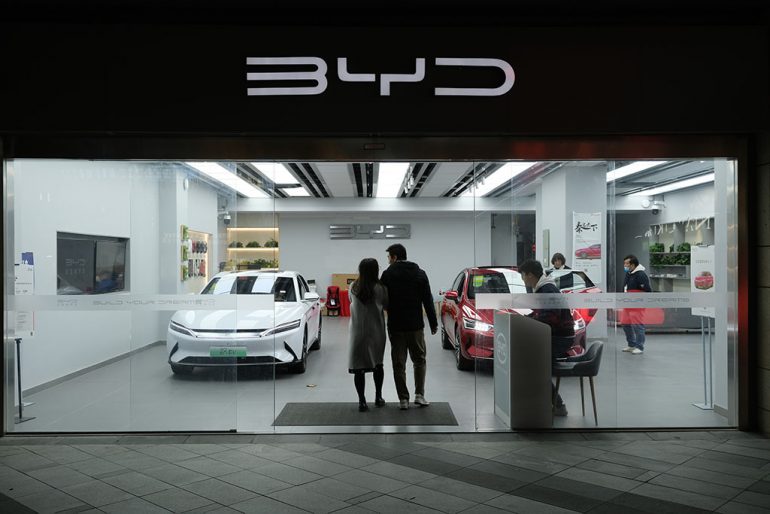
Senator Marco Rubio has put forth a proposal aimed at bolstering tariffs on Chinese vehicle imports in an effort to curb what he perceives as an inundation of the U.S. auto market by Chinese-made automobiles. Rubio’s initiative seeks to impose a substantial $20,000 increase in tariffs on these imports, with the intention of preventing China from saturating the American automotive sector. This move reflects ongoing concerns within Washington regarding safeguarding American automakers and the jobs of auto workers.
As part of his legislative agenda, Rubio also advocates for extending tariffs to vehicles manufactured by Chinese automakers in other countries like Mexico. Additionally, he proposes limitations on subsidies for electric vehicles, stipulating that they must adhere to rigorous North American free trade regulations. Rubio contends that implementing a flat tariff would rectify the perceived imbalance created by lower-priced Chinese vehicles and close existing loopholes that diminish tariff payments, thereby protecting American automakers and workers from what he deems as artificially inexpensive competition from China.
Also, don’t forget that you can get discounted new car pricing with a free quote through qualified local dealer partners.
The timing of Rubio’s proposal aligns with upcoming national elections and underscores bipartisan efforts to address the issue. Both President Joe Biden and leaders from across the political spectrum in Congress are supporting measures to restrict the influx of Chinese electric vehicle imports. Rubio emphasizes the need for a comprehensive approach to counteract what he views as evolving strategies by the Chinese Communist Party to penetrate the American auto market.
Recent developments, such as reports of China’s BYD planning to establish an electric vehicle factory in Mexico, have further fueled concerns. BYD’s ascent as the world’s leading electric vehicle manufacturer, surpassing Tesla, adds urgency to the debate. The White House has initiated an investigation into potential national security risks posed by Chinese vehicle imports, particularly those utilizing “connected” car technology.
Senator Gary Peters, a Democrat from Michigan, echoes these concerns, emphasizing the incompatibility of vehicles produced by Chinese Communist Party-backed companies with U.S. interests. Despite assertions from the Chinese foreign ministry about the competitiveness and innovation of their vehicles, there is growing apprehension within the U.S. manufacturing sector. A recent warning from a manufacturing advocacy group highlights the potential ramifications of allowing low-cost Chinese autos and parts from Mexico to inundate the market, potentially jeopardizing the entire U.S. auto industry.
In response to these challenges, Senator Josh Hawley has introduced legislation seeking significant increases in tariffs on Chinese imports, further amplifying the bipartisan effort to address the issue. The proposed measures underscore the ongoing tension between protecting domestic industries and engaging in global trade, reflecting broader debates over economic policy and national security.
Source: Reuters